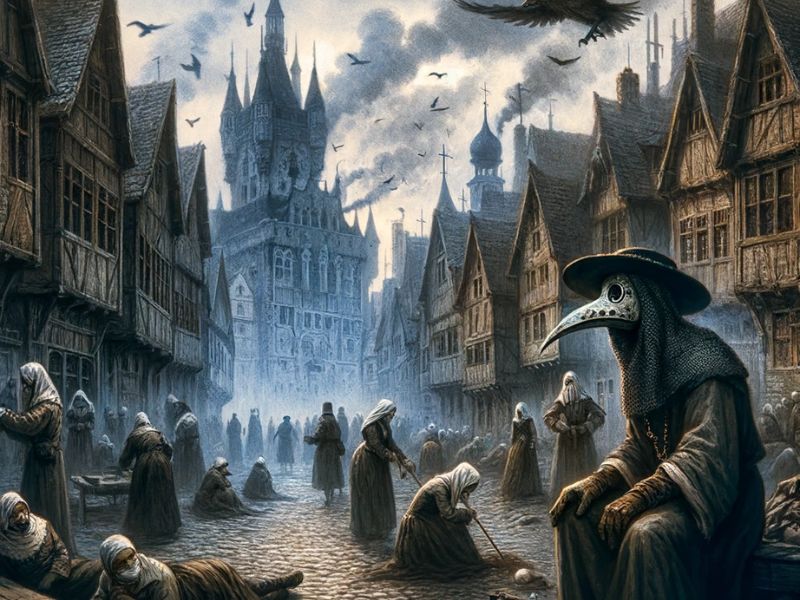
The Black Death: a tragedy that changed Europe
Under the Shadow of Death: The Arrival of the Plague
In the heart of the 14th century, Europe was struck by its most devastating pandemic in history: the Black Death. Between 1347 and 1352, this disease spread unchecked, leaving behind a landscape of death and despair. The bacterium Yersinia pestis, carried by fleas of rodents, proved to be a deadly enemy for a continent at the time poorly prepared to face such a calamity. The plague, arriving in Europe through maritime and overland trade routes, particularly ravaged Italy, France, Spain, and Germany, sweeping away approximately 30-50% of the European population in just five years.
Between Science and Superstition: Responding to the Contagion
The medical impotence in the face of the plague was palpable. Medieval physicians, anchored to outdated conceptions and lacking knowledge of bacteria, were largely ineffective in treating the disease. The hygienic conditions of the time, markedly inadequate, and the early rudimentary quarantine measures were not enough to contain the spread of the contagion. The Black Death thus had free rein to decimate entire communities, driving the population towards practices of isolation and prayer as the only refuge from disaster.
A Transformed Europe: Social and Economic Consequences
The repercussions of the plague were not only demographic but also profoundly social and economic. The drastic reduction in the workforce caused a significant labor shortage, which in turn led to an increase in wages and an improvement in living conditions for survivors. However, this change was accompanied by increased social tension, with riots and uprisings shaking the foundations of feudal society. Furthermore, the impact on culture was tangible, with a renewed sense of fatalism permeating the art, literature, and religion of the time.
The Black Death as a Turning Point
The Black Death represented a turning point in European history, not only for its devastating immediate consequences but also for its long-term effects on the social, economic, and cultural structure of the continent. The pandemic highlighted mankind’s vulnerability to the forces of nature, pushing society towards a slow but relentless process of transformation that would pave the way for the modern age.
Sources


